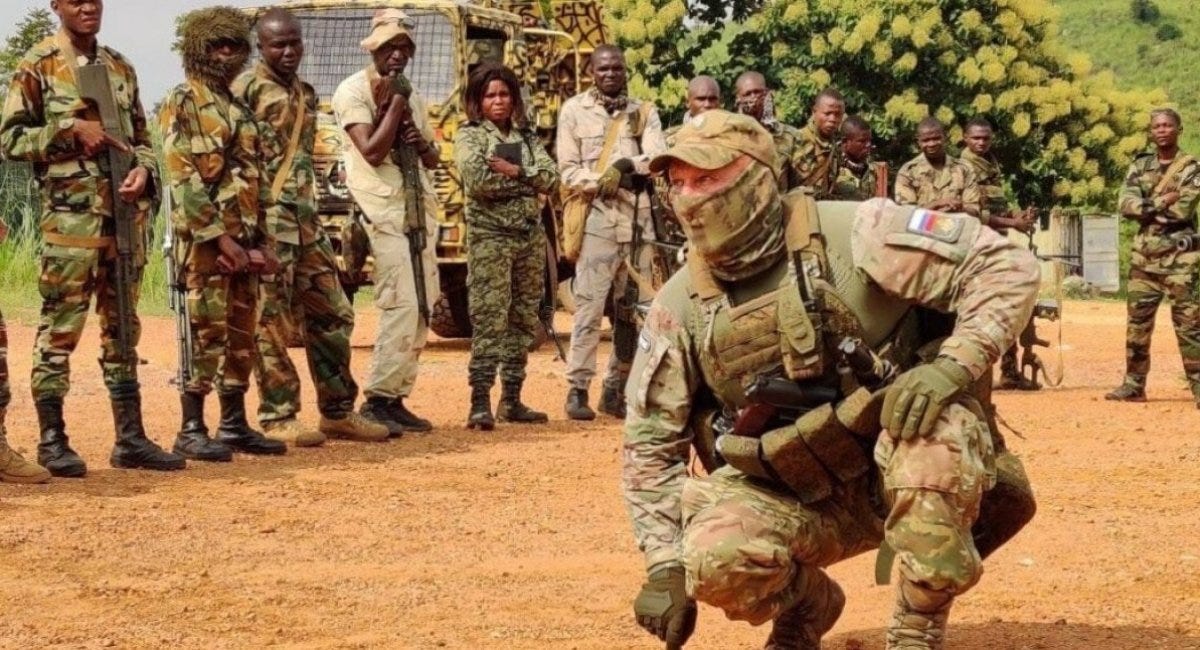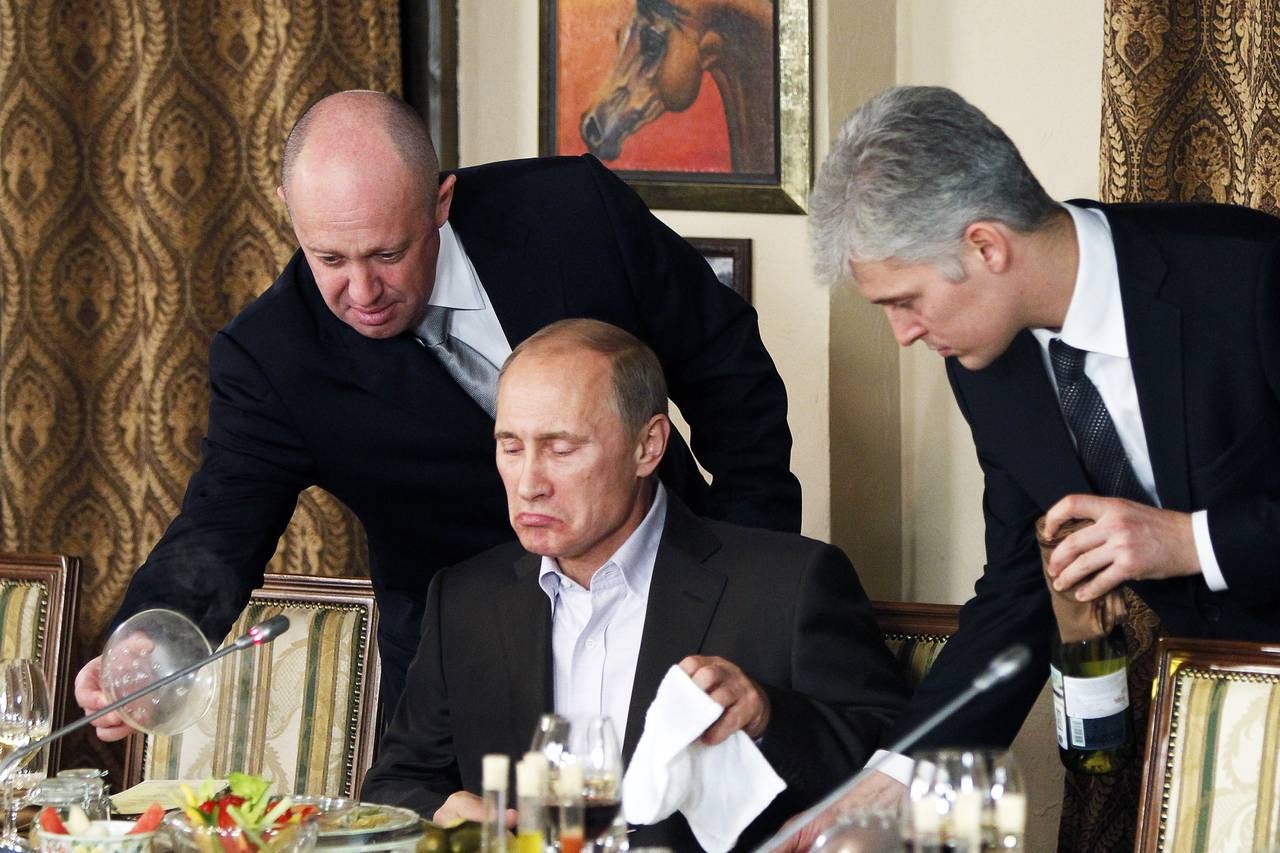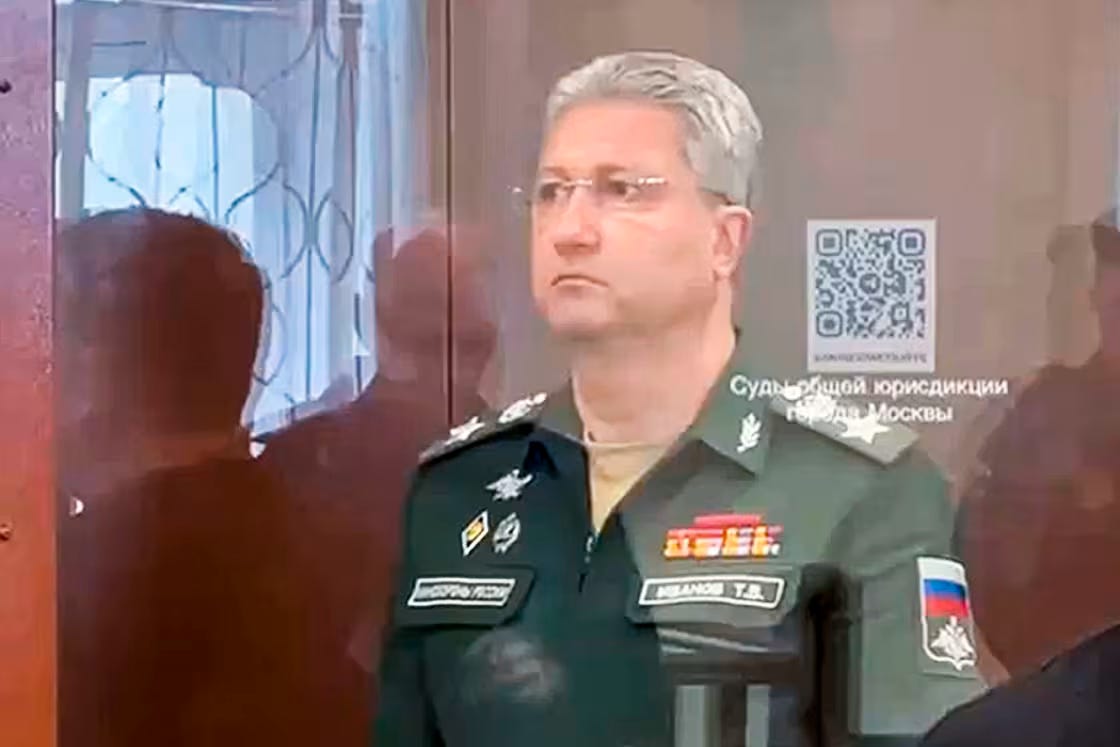Africa Corps: Wagner Rebranded
Russia's Africa Corps continues to expand in Africa under new leadership. It is the latest iteration in Moscow's ongoing experiment with private military companies (PMCs).
Africa Corps (formerly Wagner) continues to expand in Africa despite major changes in leadership and organization. Image source
On September 19, the U.S. agreed to remove its troops from Niger following a request from the country’s military junta regime. This withdrawal comes amid a realignment in Niger’s foreign policy under the junta from one that favors cooperation with the West on matters such as counterterrorism to a pro-Russian alignment. At the forefront of this change is Africa Corps (formerly Wagner Group), a Private Military Company (PMC)-turned proxy network of assets that primarily serves Russian interests by generating income from abroad, helping Moscow to finance its war effort in Ukraine while bypassing sanctions.
The Wagner name rose to prominence in recent years amid Russia’s growing presence in Africa. With the group now reorganized and rebranded under official state control as it continues to expand in Africa, it remains to be seen if its success on the continent will continue.
Origins of Wagner Group
The Africa Corps’ predecessor, the Wagner Group, originated in 2013 from the Slavonic Corps, a PMC comprised of former Russian special forces troops and other mercenaries. In 2013, the Assad regime in Syria covertly hired Slavonic Corps to guard energy facilities near Palmyra amid the country’s civil war. When an attack by the Islamic State reportedly killed over 100 of the 250 poorly equipped Slavonic Corps personnel, Russian authorities summoned its leaders to Moscow, charging them with “unlawful warfare abroad,” an embarrassing end to the group’s operations.
Former special forces officer Dmitry Utkin was one of Slavonic Corps operatives in Syria. He was reportedly obsessed with Nazi history and had links to ultranationalist groups such as the Night Wolves. In Syria, he adopted the military call sign ‘Wagner,’ reportedly after Adolf Hitler’s favorite composer, Richard Wagner. He became a founding member of the Wagner Group, which formed in late 2013, just months after the Syria debacle. The exact role Utkin played in the company is a matter of some debate.
Wagner’s history is intertwined with its former leader, Yevgeny Prigozhin. A former convict and street thug, Prighozin worked his way from being a hot dog Moscow hot dog vendor to owning a stake in a chain of supermarkets and restaurants by the mid-1990s. In the early 2000s, Prigozhin became friends with Russian President Vladimir Putin, who often dined at his restaurants. The relationship became lucrative for Prigozhin, who frequently catered events for top officials and foreign dignitaries in the Kremlin. Two decades later, he reportedly earned over USD 1.3 billion in the first year of the Ukraine war alone.
Reports suggest that a cabal of senior Russian intelligence and military officers handpicked Prigozhin to sell the idea of a state-sponsored mercenary company to Putin in 2010. Although Prigozhin denied being associated with Wagner for nearly a decade, he later claimed he founded the group in 2014. However, it is more likely that senior officials paired Prigozhin with the remnants of the Slavonic Corps that year at the behest of Putin, his longtime benefactor. In this way, the hand of the state remained present in the Wagner Group from its inception, including the Main Intelligence Directorate (GRU), powerbrokers close to Putin, heads of state enterprises, and other military staff officers.
Although the state was pivotal in creating Wagner, the association was not public. This arms-length approach allowed Moscow to maintain plausible deniability internationally, shield its military from unnecessary battlefield exposure, and hide casualties from its citizens. But the group is much more than just a PMC today, operating a quasi-corporate global network of special operations assets, disinformation agents, and financial intermediaries.
Russia’s Slavonic Corps briefly operated in Syria before seeing their poorly-equipped ranks decimated by attacks from the Islamic State. Russian authorities prosecuted its leaders, and later incorporating members into Wagner under the leadership of Putin loyalist, Yevgeny Prigozhin. Image source
Before he ran Wagner, Yevgeny Prigozhin (left) maintained close ties to Vladimir Putin, often catering events at the Kremlin. Image source
Modus Operandi
Wagner’s primary focus is profiteering in loosely governed countries, including extracting and smuggling natural resources such as gold and diamonds, especially in Africa’s Sahel region. Previous articles from Between the Lines have covered Wagner’s activities in this regard in Sudan. Similarly, in the Central African Republic (CAR), Wagner is poised to reap around USD 1 billion in annual profits from gold mining conducted by its shell company, Midas Resources, along with timber and diamond extraction. In Mali, the group is on its way to expand existing mining operations.
Wagner’s focus on natural resource extraction coincides with increased international sanctions on Russia that started with its 2014 annexation of Crimea and intensified greatly with its 2022 invasion of Ukraine. Given Moscow’s current economic and political isolation, it is more reliant than ever on spoils generated by the Wagner Group, particularly gold, which has helped bolster its currency. Investigative reports also show that Wagner has contributed some $2.5 billion in illicit cash to Russia’s war effort. It does this by propping up the military regimes of countries such as those of the Sahel, which experienced a wave of coups starting in 2020. These regimes allow Wagner to operate with general impunity in exchange for military assistance.
Wagner engineers anti-Western sentiments in African states where Western countries engage in peacekeeping and counterterrorism operations. In April 2022, France released drone footage showing Wagner Group operatives arriving at a base in Gossi, northern Mali, where they arranged corpses in shallow graves in an apparent attempt to show mass killings by French troops. The Internet Research Agency – a troll farm once funded by Prigozhin – has run other successful anti-France campaigns that speak to local grievances, such as France’s colonial history and exploitation of the country’s vast uranium reserves.
Wagner’s record in the places it operates frequently gives rise to new local grievances, including war crimes against civilians. In one example, Wagner personnel and CAR forces killed over 100 people, mostly civilians, in the town of Bambari in February 2021. In 2023, Wagner personnel reportedly raped civilians near Bambari, with experts saying this organized violence is another tool of state capture. Similar accounts have emerged from Mali and Sudan.
Gold is a key component of Wagner’s presence in Africa. It reportedly controls several mines there, including the largest in the CAR (pictured). Image source
The Prigozhin Affair and Reorganization
On June 23, 2023, Prigozhin and Wagner staged an insurrection against the Russian government amid a public feud with Defense Minister Sergei Shoigu over the latter’s handling of the war in Ukraine. Although Wagner troops briefly took control of Russia’s Southern Military District and Rostov-on-Don, Russian authorities soon quashed the insurrection, ordering Prigozhin and his men into exile in Belarus. On August 23, Prigozhin, Utkin, and 21 others died in a plane crash while traveling from Moscow to St. Petersburg in what was almost certainly an assassination orchestrated by Russia’s top leaders. It remains unclear whether Prigozhin staged the mutiny on his own accord or that of his political sponsors, who may have sought to replace Shoigu with their own people. Regardless, the incident marked a turning point in Wagner’s history.
Russian authorities have officially disbanded the Wagner Group, with many of its members subsumed into the Africa Corps under Russia’s Ministry of Defence. The group’s name, a likely nod to the German expeditionary force during World War II, also indicates renewed focus. Putin also seems to be taking a more hands-on approach to managing the Africa Corps, firing Defense Minister Shoigu – who was frequently subject to accusations of incompetence and corruption – and replacing him with Andrei Belousov, an economist who previously served in key positions in the state planning department, including the management of Wagner’s accounts. In an apparent attempt to clean house, Putin has also detained top Shoigu loyalists on corruption charges.
Belousov brings a substantial bureaucratic and academic background to the Ministry of Defense and is, in this sense, the antithesis of Utkin and Prighozin. Still, the road ahead is difficult. To reorganize the Africa Corps into an effective institution, Belousov will likely have to contend with Prigozhin loyalists operating with little oversight far from Russia’s borders. As with many things in the Russian system, obtaining and maintaining loyalty and ensuring the money still flows will likely be his greatest challenges.
Russian authorities recently arrested former Deputy Defense Minister, Timur Ivanov on corruption charges in an apparent attempt to purge Shoigu loyalists from the department. Image source
Conclusion
Africa Corps remains a potent force in the Sahel and beyond, where it will likely continue to expand its footprint amid growing regional instability, with Chad and Cameroon likely candidates. Moreover, it is important in generating revenue for Russia’s increasingly costly war effort in Ukraine. However, with the organization now under new leadership, ensuring it continues to function in all the ways that benefit the state with none of the bad could prove challenging. Regardless, the organization’s ability to generate revenue from abroad for a regime under sanctions may have set an important precedent for other countries seeking to do the same, potentially legitimizing further theft and violence worldwide.









Thanks for the interesting article. The spread of Russian and Chinese private military company activity in Africa and the Indo-Pacific Region is little reported, but is a significant security issue in both regions. Dimitry Utkin, the ex-Spetznaz colonel and original operational leader of Wagner Group sported a selection of Nazi inspired tattoos. So the 'Afrika Corps' branding is not surprising.
Tarun, who started calling this unit Afrika Corps? The Russians are bad guys and I'm not convinced the Ukrainian officials are any better, but this name reflects back to the German (Nazi) Army in North Africa during WWII. Certainly, Russia is not calling themselves after a WWII German Army Corps???
Thanks, this article does have some great information.